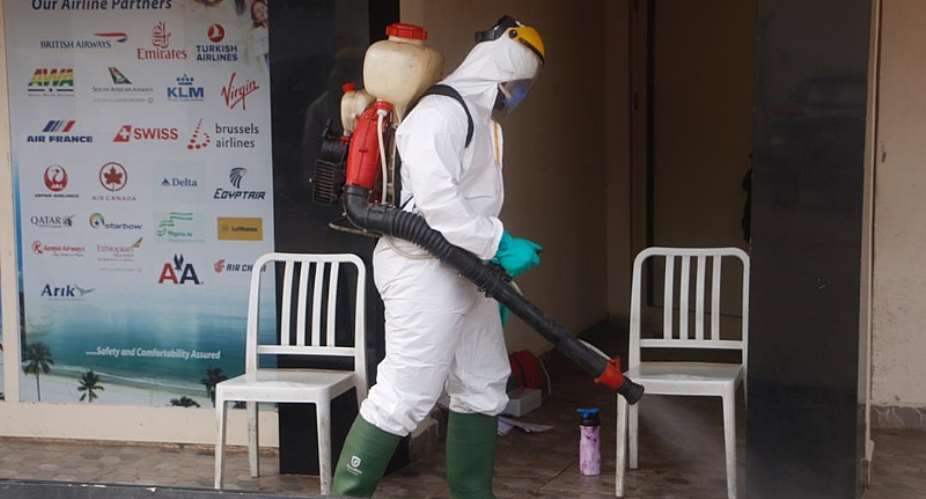Outbreak of bed bug infestation in the country is likely to demotivate households especially those leaving in socially deprived communities to adhere to the compulsory stay at home policy by government.
Fast growing epidemics such as bed bug infestation has become a major global health concern.
In a recent publication reviewing the history of bed bugs infestation in Africa(Doggett et al. 2018).
Bed bug infestation has been documented across many African nations including several West African countries.
In East Africa, Nakuru community in Kenya documented 4000 bed affected households.
Infestations were reported across several states of Nigeria. Sierra Leone documented high bed bug infestations in mentally disabled homes as far back 2002.
In Ghana, the local media has severely reported on heavy bed bug infestation commonly observed in most Senior high schools of the country.
Socio-economic factor is often mentioned in relation to bed bugs and it appears that people leaving in low income communities are easily predisposed to severe bed bug infestations as they cannot afford the cost of effective control.
Among households in the country, we presented an Abstract publication at the just held Ghana Science Association Biennial Conference in 2019 (Deku et al.) reporting severe bed bug infestation among households in Cape coast.
Health impacts of the infestation reported in this paper indicated that over 89% of the affected 205 households in 20 communities surveyed experiences servere bed bug bites every night following sleepless nights and sleeping outside to avoid bites.
We collected over 5000 bed bugs from less than 50 household sleeping places.
Generally, community bed bug infestation levels in Cape coast was high.
To reduce the spread of the novel corona virus disease (COVID 19), Advocating that household compulsorily stay home to break the chain of infection has become one of the major key intervention recommended by World Health Organization.
When people stay home they reduce the tendency of contracting and spreading the viral disease.
However, severe bed bug infestation in a home is a likely demotivating incentive for households leaving in deprived communities, who have made up their minds to stay home.
Whilst most households sleep in the night to rest their bodies for the next day activity, this is not so among bed bug affected communities.
As for these homes, households struggle to catch sleep, wonder and wonder in the night when the next day will come.
For these households, sleeping is like waiting and enduring the nuisance bites from this insect, so that they can move out of their uncomfortable sleeping places.
The bed bug affected households are likely to abandon their sleeping and resting places during the day when they are posed with numerous bites from bed bugs.
Moreover, they are more likely to prefer spending more time outside their rooms to avoid bites than to subject themselves to severe bites from bed bugs even during the day.
Therefore, bed bug infestation is likely to threaten effectiveness of the 'compulsory stay at home intervention' among bed bug affected communities.
Community-based interventions on bed bugs control are also required to free households from bed bugs and motivate them to stay home in other to aid in the prevention of the new pandemic.
Name: Godwin Deku
(Final year Mphil. Candidate- Dept of Conservation Biology and Entomology - University of Cape Coast)
Health Tutor - Accra School of Hygiene, Korle-Bu and Environmental Health Practitioner)
+233553335839





 We’ll no longer tolerate your empty, unwarranted attacks – TUC blasts Prof Adei
We’ll no longer tolerate your empty, unwarranted attacks – TUC blasts Prof Adei
 Bawumia donates GHc200,000 to support Madina fire victims
Bawumia donates GHc200,000 to support Madina fire victims
 IMF to disburse US$360million third tranche to Ghana without creditors MoU
IMF to disburse US$360million third tranche to Ghana without creditors MoU
 Truck owner share insights into train collision incident
Truck owner share insights into train collision incident
 Paramount chief of Bassare Traditional Area passes on
Paramount chief of Bassare Traditional Area passes on
 Two teachers in court over alleged illegal possession of BECE papers
Two teachers in court over alleged illegal possession of BECE papers
 Sunyani: Victim allegedly shot by traditional warriors appeals for justice
Sunyani: Victim allegedly shot by traditional warriors appeals for justice
 Mahama vows to scrap teacher licensure exams, review Free SHS policy
Mahama vows to scrap teacher licensure exams, review Free SHS policy
 Government will replace burnt Madina shops with a new three-story, 120-store fac...
Government will replace burnt Madina shops with a new three-story, 120-store fac...
